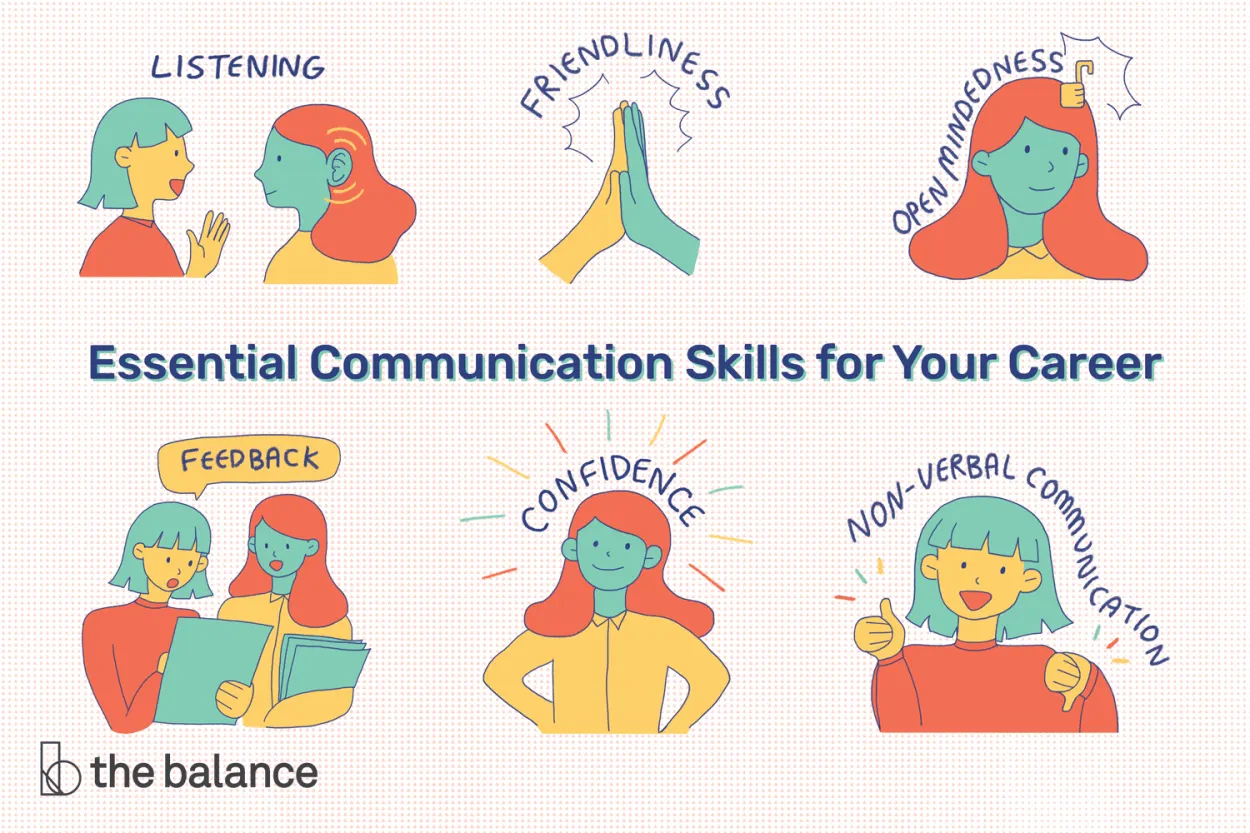Effective communication skills are crucial for achieving business success. They enable individuals to express ideas clearly, build strong relationships, and resolve conflicts. In this article, we will explore various strategies and tips to enhance communication skills and maximize professional growth.
Active Listening Techniques for Improved Communication
In today’s fast-paced business environment, effective communication skills are crucial for success. One key aspect of effective communication is active listening. Active listening involves fully engaging with the speaker, not just hearing their words but also understanding their message, emotions, and intentions. Here are some techniques that can help you improve your active listening skills:
-
Show genuine interest
Be genuinely interested in what the speaker is saying. Maintain eye contact, nod your head occasionally, and provide verbal cues such as “I see” or “Go on” to show that you are paying attention.
-
Minimize distractions
Avoid distractions that could hinder your ability to listen effectively. Put away your phone, close unnecessary tabs on your computer, and find a quiet and comfortable environment for the conversation.
-
Paraphrase and summarize
Repeat or rephrase what the speaker has said to ensure understanding. Summarize their main points to demonstrate that you have grasped the key message.
-
Ask clarifying questions
If something is unclear or you need more information, don’t hesitate to ask questions. This shows the speaker that you are actively engaged and seeking a deeper understanding.
-
Manage non-verbal cues
Pay attention to the speaker’s body language, facial expressions, and tone of voice. These non-verbal cues often provide additional insights into their emotions and underlying meanings.
By practicing active listening, you can cultivate stronger communication skills. It allows you to better understand others, resolve conflicts more effectively, and build stronger professional relationships. Start implementing these active listening techniques today, and witness the positive impact they have on your business success.
Building Rapport and Trust with Effective Communication
Effective communication skills play a crucial role in achieving success in the business world. One key aspect of effective communication is building rapport and trust with others. When rapport and trust exist, business relationships become stronger, collaboration improves, and goals can be achieved more efficiently.
Building rapport starts with active listening. By paying full attention to others, acknowledging their perspectives, and showing genuine interest in their ideas, you can establish a connection and create a comfortable environment for open communication.
Trust is another important element. Trust is earned when your actions align with your words, and you consistently deliver on your promises. Building trust involves being honest, reliable, and transparent. Avoiding gossip, being consistent in your actions, and respecting confidentiality also contribute to building trust.
In addition to active listening and building trust, effective communication also requires clear and concise messaging. Avoid jargon and use language that is easily understandable to your audience. Be mindful of your tone and body language, as they can greatly impact how your message is perceived.
Lastly, it is important to adapt your communication style to different individuals and situations. Some people prefer direct and straightforward communication, while others may need a more empathetic and supportive approach. By understanding and adapting to the communication preferences of others, you can foster better rapport and understanding.
In conclusion, building rapport and trust through effective communication is essential for achieving success in the business world. By actively listening, being trustworthy, communicating clearly, and adapting to different communication styles, you can create stronger relationships, enhance collaboration, and ultimately drive business success.
Non-Verbal Communication in Business Interactions
Non-verbal communication plays a vital role in business interactions and is often as important, if not more, than verbal communication. The way we convey messages through our body language, facial expressions, and tone of voice can influence the success of our business endeavors. Understanding and utilizing effective non-verbal communication skills can greatly enhance our ability to connect, build trust, and foster positive relationships in the business world.
Body language, such as posture, gestures, and eye contact, can convey confidence, attentiveness, and interest in a business setting. Maintaining an open and relaxed posture, using appropriate hand movements, and maintaining eye contact demonstrate active listening and engagement. Conversely, crossed arms, fidgeting, or avoiding eye contact can convey disinterest or discomfort, hindering effective communication.
Facial expressions are another essential aspect of non-verbal communication. Smiling, nodding, and maintaining a friendly and approachable expression can create a welcoming environment and signify agreement or approval. On the other hand, frowning or displaying negative facial expressions may deter communication and create a negative perception.
Tone of voice also plays a significant role in conveying messages. A confident and assertive tone can convey authority and credibility, while a friendly and empathetic tone can foster rapport and understanding. Conversely, a harsh or monotonous tone can create a distance between individuals and hinder effective communication.
Lastly, being aware of cultural differences in non-verbal communication is crucial in international business interactions. Gestures, body language, and facial expressions can have different meanings across cultures. Therefore, understanding and respecting cultural norms and adapting our non-verbal communication style accordingly is essential to avoid misunderstandings and build strong global partnerships.
Conclusion
Effective communication skills are crucial for achieving success in the business world. It allows individuals to express their ideas clearly, build strong relationships, and make informed decisions. By mastering communication techniques such as active listening, empathy, and effective feedback, professionals can enhance their professional image, resolve conflicts, and drive collaboration within their organization. Developing these skills is a long-term investment that will undoubtedly contribute to career growth and business success.




